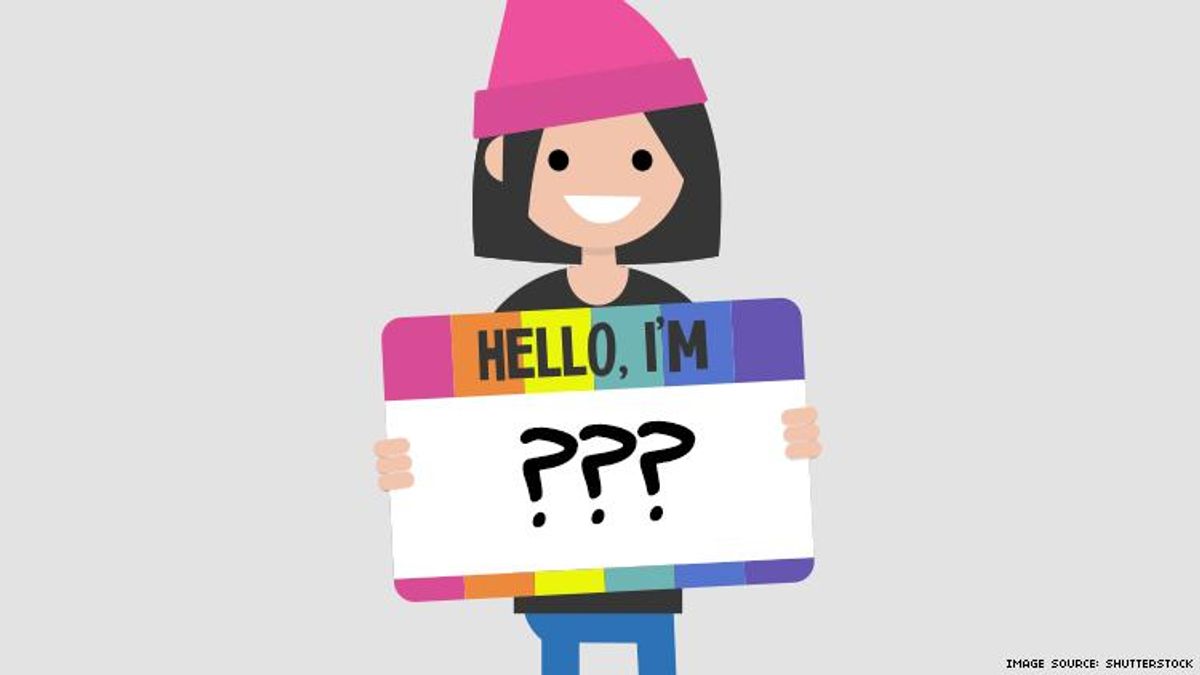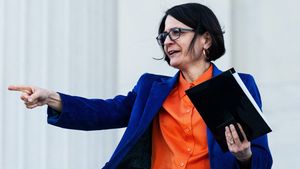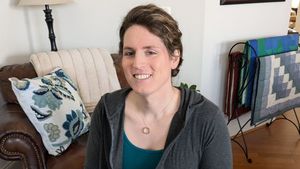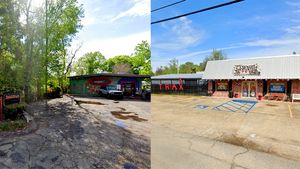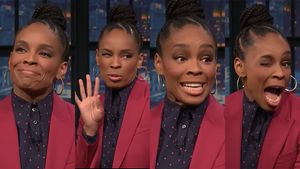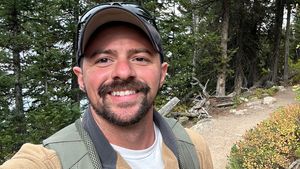Welcome to !Hola Papi!, the advice column where John Paul Brammer helps people work through their anxieties, fears, and life's queerest questions. If you need advice, send him a question at holapapiletters@gmail.com.
!Hola, Papi!
I'm 21 and I've never been in a relationship. But in recent years, especially in recent months, I have embarked on a quest to find my space in the LGBTQ+ community. I've questioned my identity for a long time, given that I've been singled out as "the lesbian" for not being stereotypically feminine, and now I'm finally committing myself to getting answers.
The thing is, I'm still a little confused. My first sexual experience was with a woman, but I'm not sure how that experience has impacted who I am. I still don't know who I am, Papi, and I'm not even sure who I love. I thought for a while I had found my place as the "B" in "LGBT," because I fall in love with girls and boys, but I'm questioning that too.
These days, I'm constantly searching for cultural references and figures within the community that will give me some clue. I feel like I should be comfortable in my identity before officially joining the community, because I don't want to offend anyone with my ignorance. Anyway, I guess what I'm saying is: I don't know what my label is. I don't know if labeling yourself is a good or bad thing. I want to label myself because I know there is power in it and it makes it easier to find resources, but putting pressure on myself to do so is stressful. What should I do?
Love,
Label or Leave It
Woof. You're going through it, LL! Take a breath for me real quick, OK?
You're right that there's power in identifying yourself with a certain community. It can make it easier to meet people who intimately understand your struggles and, as you said, to plug in to peer resources. Although I would add that, depending on the community, it can actually be even harder to access certain institutional services, like healthcare for example.
I'm not down with the whole "labels are for clothes, not people" line of thinking. It strikes me as a kind of edgy "Myspace teen in 2005" (me) thing to say. We do, to some extent, need labels. Sometimes we need to be specific, and because we are humans, we would probably find it difficult to do so without specific language.
But what I'm getting from your letter is anxiety that you won't "belong" in the community until you've done your homework and figured out which letter of LGBTQIA2+ will have you. I don't know if this will worry you more or less, but I can tell you upfront it doesn't work that way. There's no Sorting Hat, LL. The only thing that makes it like Harry Potter is that J.K. Rowling will occasionally add new characters to the community with little to no warning.
I think what might be helpful here is to rethink your approach to "t h e c o m m u n i t y" and to identity in general. You'd be forgiven for thinking that "coming out" is about arriving at a destination. The story we're familiar with is that you spend some time in the closet figuring out who you are and unpacking society's harmful messages, and then when you're done running the equations, you vocalize your identity for the first time, thus partitioning your life into "pre-closet" and "post-closet."
But life, and by extension identity, aren't like that. Identity is not some buried object that, once you dig up, is yours to keep and hold and put on your coffee table as a conversation starter. It's more of a terrain unto itself, an ecosystem of instincts, motives, subconscious desires, and experiences. It is subject to profound change over time, affected by the shocks and throes that come with moving through the world. We can spend our whole lives examining it and trying to understand it, and the best we'll come up with is a crude map.
And that's OK! Language and identity are our deeply human, deeply flawed attempts to make static what is turbulent and elusive, to render legible what is inherently illegible: the experience of being. That's a lot of high-minded gibberish for saying that identities are a tool, LL. They help us make sense of the world and our place in it in relation to other people and to the systems that govern us. Oppressors do violence with it, the marginalized organize with it, but it's neither inherently good nor bad. Just necessary, for the most part, to describe what's going on.
You currently being unable to reconcile your identity with a letter in our lovely rainbow alphabet does not mean you're identityless. It just means you're looking for the best way to articulate it. That's a difficult process we all embark upon to some extent. I mean, I'm Mexican-American. In my life, I've called myself Mexican, Hispanic, Chicano, Latino, Latinx, and the list goes on. Why? Because language is crude and will always, always fail at capturing the breadth of nuance that complicates any given experience. It doesn't make me "not Mexican-American," and it doesn't make "Mexican-American" a not-real thing. It makes the project of figuring out what that means a lifelong errand with moments of clarity, but more often, moments of deep confusion.
The same is true for queer people. The word "queer" itself doesn't mean now what it did decades ago. And you know what? People still haven't settled on what it should mean in the present. I anticipate even more changes will occur in my lifetime, which I'm fine with, because I've accepted that my mission is not to arrive at "the answer."
I think my mission is to embrace the imperfect journey of discovery and to be open to whatever I encounter. I think that's the real spirit of queerness: to question the norms we have been conditioned to hold, and to challenge the man-made structures that limit us. I think it's an approach to life that hits closer to the truth. We don't necessarily know what's going on in this reality, and that can be frightening, but if we want to make any headway, we will need to be open to new ways of understanding it and ourselves.
In short, change is the norm, LL.You might decide that you're bisexual tomorrow, and that's great! But don't feel like you're signing an irreversible contract in doing so, like an Equinox membership. I think involving yourself in the community right now could help you in learning more about yourself and our history, and would probably bring you closer to figuring things out.
Welcome to the community! I'll alert Miss Rowling.
Con mucho carino,
Papi
